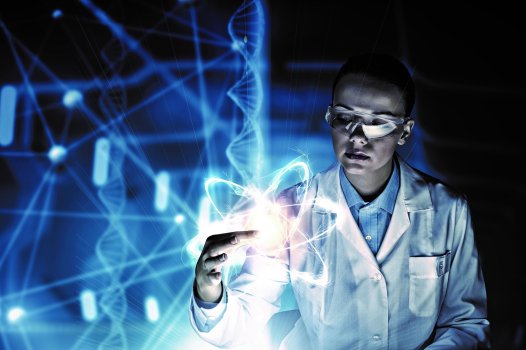The confluence of data, compute power and advances in the design of algorithms for AI (artificial intelligence) and ML (machine learning) are driving new approaches in the laboratory. This gives scientists access to additional tools that can open new avenues for research or accelerate existing workflows.
The increasing interest in AI and ML is driving software companies to examine how they can develop their own software frameworks, or integrate functionality into existing laboratory software to support laboratory scientists’ use of AI.
Some examples of domain areas that are already seeing benefits of early AI adoption include predictive maintenance of instruments; predicting efficacy and potential of small molecules for drug discovery; and image analysis for a variety of different use cases such as crystallography and medical imaging.
Stephen Hayward, product marketing manager at Biovia, Dassault Systèmes highlights the steps the company has taken to integrate AI functionality into its software: ‘We have a product called Biovia Pipeline Pilot, which is all about data science, data preparation, connecting data sources together and performing various functions on it. When we talk about machine learning and AI, it’s Pipeline Pilot that is core to that.’
As the adoption of AI and ML techniques becomes more widespread the techniques are beginning to transform how scientific research is conducted. However, organizations need to ensure their teams are focused on their scientific goals rather than trying to develop expertise in advanced computational methods. While it is true that there should be some staff with a good understanding of AI and the software frameworks they are using to build these intelligent systems, it is unreasonable to think that specialized domain expert lab scientists should be expected to develop skills in computer science or the development of AI frameworks.
Continue reading: https://www.scientific-computing.com/feature/ai-revolution
The increasing interest in AI and ML is driving software companies to examine how they can develop their own software frameworks, or integrate functionality into existing laboratory software to support laboratory scientists’ use of AI.
Some examples of domain areas that are already seeing benefits of early AI adoption include predictive maintenance of instruments; predicting efficacy and potential of small molecules for drug discovery; and image analysis for a variety of different use cases such as crystallography and medical imaging.
Stephen Hayward, product marketing manager at Biovia, Dassault Systèmes highlights the steps the company has taken to integrate AI functionality into its software: ‘We have a product called Biovia Pipeline Pilot, which is all about data science, data preparation, connecting data sources together and performing various functions on it. When we talk about machine learning and AI, it’s Pipeline Pilot that is core to that.’
As the adoption of AI and ML techniques becomes more widespread the techniques are beginning to transform how scientific research is conducted. However, organizations need to ensure their teams are focused on their scientific goals rather than trying to develop expertise in advanced computational methods. While it is true that there should be some staff with a good understanding of AI and the software frameworks they are using to build these intelligent systems, it is unreasonable to think that specialized domain expert lab scientists should be expected to develop skills in computer science or the development of AI frameworks.
Continue reading: https://www.scientific-computing.com/feature/ai-revolution

